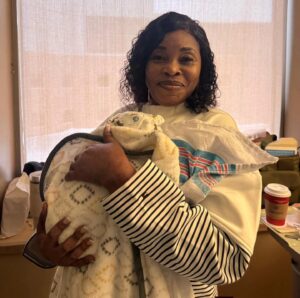
A Special Offences Court presided over by Justice Rahman Oshodi, on Monday, April 8, 2024, remanded Mr Godwin Emefiele, former Governor Central Bank of Nigeria (CBN), in the custody of the Economic and Financial Crimes Commission for alleged abuse of office.
While Emefiele was remanded in the EFCC custody, his co-defendant, Henry Isioma-Omoile, was remanded in Ikoyi Custodial Centre where he is currently held pending the determination of their bail application on April 11, 2024.
In his two bail applications, Counsel to the defendants, Mr A. Labi-Lawal, urged the court to grant the defendants bail on self-recognition and on liberal terms pending the determination on the case.
Labi-Lawal, in his 31 points affidavit, said Emefiele being the first defendant had complied with the bail application which was granted him by Justice Muazu over his alleged fraud trial case going on in Abuja.
The defence counsel said the charges were bailable offences and not a capital offence, adding that Emefiele was earlier granted administrative bail by the prosecuting authority.
According to Labi-Lawal; “He is seeking for bail based on self-recognition and he is ready to attend the court. The court should also take into consideration, the status of the first defendant as he was the former Governor of the CBN of the country”.
He also said that Emefiele had religiously presented himself before Justice Muazu in Abuja to answer the allegations against him, stressing that the former CBN governor is not a flight risk, saying that he was the first person to arrive in court.
Labi-Lawal appealed to the Court to release Emefiele to lawyers pending the determination of his bail.
Earlier, Emefiele and his co-defendant pleaded not guilty to the 26-count charge bordering on abuse of office, accepting gratification, accepting gifts through agents, corruption, and fraudulent property receipt.
Counsel to the EFCC, Mr Rotimi Oyedepo, SAN, did not oppose the bail application moved by the defence counsel, but urged the court to exercise its discretion judiciously in granting bail to the defendants.
Following the plea by the defendants, the prosecution asked the court for a trial date.





